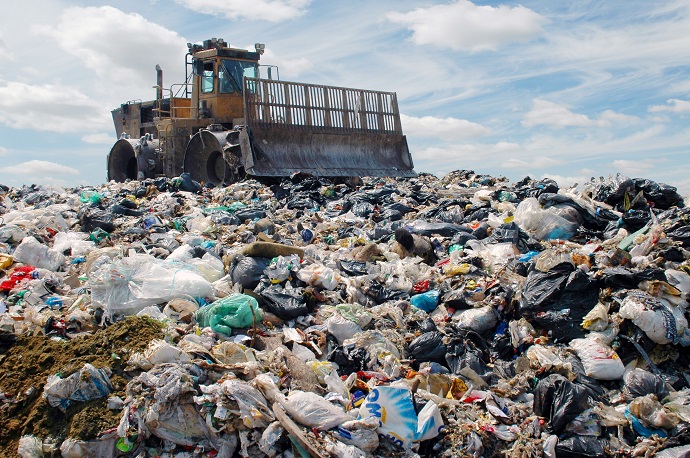Food Waste and Sustainability

Food waste is hands down the most common and preventable source of waste on the planet. One of the simplest ways to begin leading a more sustainable lifestyle is to make an effort to be less wasteful, especially when it comes to food. We are all guilty of throwing away food or even wasting it. Maybe you let some fruit go bad or didn’t finish some of your dinner. Maybe you cooked too much for a party and just couldn’t consume all of the leftovers yourself. These are all forms of waste.

Every bit of food wasted increases your carbon footprint. The Environmental Protection Agency (EPA) estimates that Americans waste roughly 1/3 of all food that is intended for consumption, and that includes figures that state 1/3 of all fruits and vegetables are wasted, or rotted away, as well. It is estimated that 12% of all trash is food. In 2013 alone, the United States threw away 37 million tons of food that just sat in a landfill. Every family in the United States alone loses anywhere between $1600-$2000 a year on wasted food. That amount of money could feed the average family of four for nearly four months. This extravagant waste isn’t even taking into consideration the business sector such as restaurants, school, and companies. At the end of the day, most restaurants and schools with leftover food just throw it away instead of donating it to worthy causes.

All of this nonsense of wasting and throwing away food has been creating a domino effect of environmental toxins. When we throw away food, it sits in a landfill and just rots. This rot produces methane gas. Methane gas is a greenhouse gas that is classified as having 21 times more global warming potential than carbon dioxide. Additionally, when we waste all of this food, we are wasting all of the resources used to make the food. This includes the water used to grow the food, pesticides to treat food, and land to grow food. If we keep wasting food at these levels, we will need to increase our food production levels by 60% by the year 2050 to feed our increasing population. This is taking into consideration the mass amount of food waste. Astonishingly enough with all of this wasted food, you would think that there would be no hunger in the world. But unfortunately that is not the case. To this day, hundreds of millions of people are estimated to be going hungry globally each and every year. It is predicted that if food waste is eliminated, we would easily have enough food to feed everyone.
Food waste doesn’t have to be our way of life. It shouldn’t be our way of life. It cannot be our way of life if we want people to keep living life on this planet. Humans will not survive if food becomes scarce and hard to grow. There can even be dangers of food wars breaking out.

However, a few simple steps can be taken to greatly reduce, and even eliminate, food waste around the world. We all have to do our part. If everyone made a conscious effort to do two or more of the following, food waste could be significantly reduced, or even eliminated.
– When grocery shopping, make a list. Buy only what you need. Check your cabinets and refrigerator before you leave so you do not buy anything double.
– Use everything you have. If you are low on groceries, make a meal using whatever you have left.
– Shop often. Planning meals ahead one or two weeks will enable you to purchase smaller amounts of groceries at a time increasing the chances of use.
– Buy fresh food once a week. This mean fruits and vegetable should be bought weekly to avoid them rotting on your counter.
– Be aware of “sell by” or “use by” dates. These dates are the main reason why food is thrown away. If you are mindful of these food deadlines, you will consume these items on time.
– Set your fridge to the correct temperature, most are set too high. This is a tip that most will not think about. If your refrigerator is set too warm, food will go bad more quickly causing you to throw more food away.
– Don’t waste leftovers. Take them to work for lunch or create a whole new recipe with your leftovers
– Compost. If you have to throw away food, start a compost garden and return the nutrients to the earth. You can compost left over scraps, vegetable peels, egg shells, coffee grounds, and leftovers you can’t finish. If you don’t have space to compost, look for a local composting company who will come pick up your compost weekly.
– Preserve food that you have too much of. Some popular preservation methods include:
1. Drying
2. Canning
3. Salting
4. Sugaring
5. Vacuum seal
All of these method of food preservation, will save you money, be the source of quick meals, and keep food out of the dumpster. You can learn any of these methods online.
Living a completely sustainable lifestyle may not be feasible to all. You may think it takes too much effort or time. In reality, all it takes is for one to be more mindful and conscious of their habits. A little effort really does go a long way.
Sources:
https://www.epa.gov/sustainable-management-food/sustainable-management-food-basics#what
http://www.thinkeatsave.org/index.php/top-tips-on-reducing-food-waste
http://www.triplepundit.com/special/food-waste/why-food-waste-is-an-urgent-global-problem/#